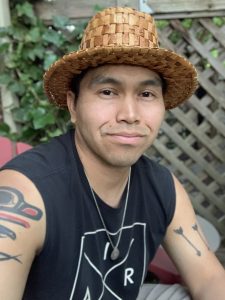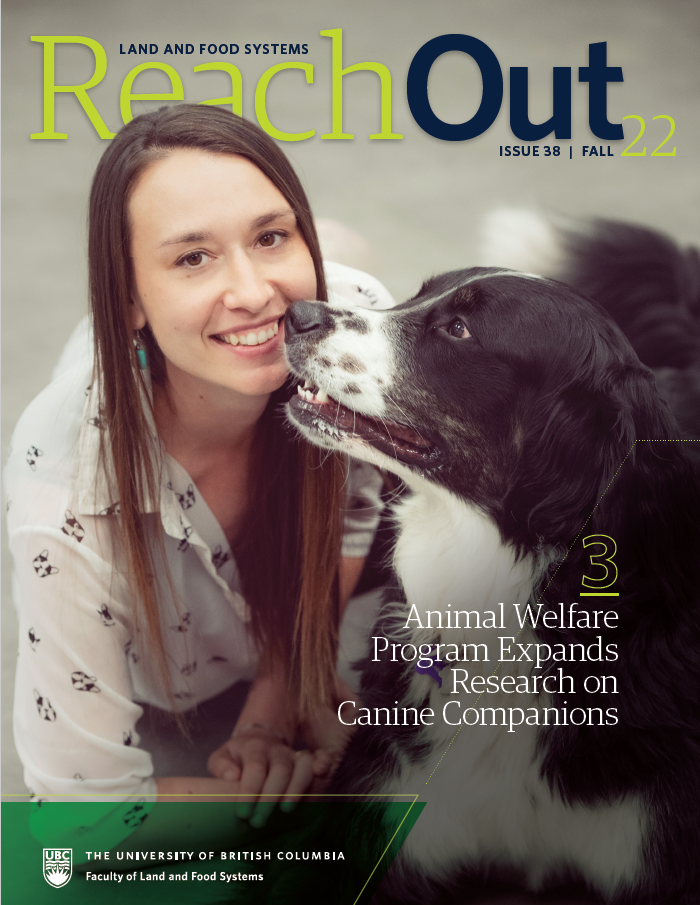Shaping Indigenous Curriculum at LFS

As a recent graduate of UBC’s Dietetics program, Michael Wesley is dedicated to making an impact in his community and fostering relationships across the province.
Wesley is part of the Gitanmaax Band, nestled between the Skeena and Bulkley River. He worked various jobs in the trades industry before embarking on this career change: “I wanted to do something that would be more impactful and meaningful to myself and the community I grew up in.”
Wesley now has his own business, Indigenous Health and Nutrition Consulting, where he is committed to providing culturally safe nutrition care for Indigenous communities.
Wesley first became aware of dietitians after watching TV one night and seeing a list of professions who could make an impact on the world’s health – dietitians were among the top three.
“When I started thinking about a career change, I learned that dietitians in Kamloops were working in population health and doing food security initiatives,” says Wesley. “That was interesting to me because growing up, I experienced food insecurity and my main motivation was to address food insecurity with youth in the communities.”
As the only dietitian training program in the province, UBC’s Dietetics Program is committed to meaningful reconciliation with Indigenous communities: “We are very fortunate to learn from graduates such as Michael. Decolonization requires intentional ongoing commitment – this is a process that will take years so this work is just the start,” says Tamara Cohen, Director of Dietetics.
Wesley has been part of shaping Indigenous curriculum at LFS, leading a guest lecture for dietetic undergraduate and Master of Nutrition and Dietetics students at xʷc̓ic̓əsəm, the Indigenous Health Research & Education Garden located at the UBC Farm.
He explains that it is unrealistic for students to learn the complexities of Indigenous health in a single lecture, but wanted to lay the foundation for students to become familiar with the health disparities in the community.
“We talked about the complexities of Indigenous health, the role of colonization, and Indigenous knowledge, which is not well-represented in the academic fields,” explains Wesley. “We also talked about the different types of diseases that are present in the community and how they got there because they weren’t there before colonization.”
Wesley is open to teaching students about Indigenous health but says he is also still learning: “Because colonization had such an impact on our culture and communities, there is so much that is missing and we’re all just trying to put the pieces back together.”
Besides collaborating with researchers at LFS, Wesley has worked with public health dietitians at Interior Health. He is currently working with the B.C. Centre for Disease Control (BCCDC), revising the food costing report to include Indigenous voices from rural communities. This past summer, Wesley travelled to communities in Northern B.C., speaking at conferences for Elders and youth.
“I initially wanted to become a dietitian to address food insecurity issues so that’s where I hope to do more work in the future and work directly with communities.” When asked about his greatest accomplishment, Wesley does not hesitate to mention his family: “The first thing that comes to mind is my children. They were born when I started going to university and I can’t believe how far they’ve come.”
Tagged with: 2022, Dietetics, Equity Diversity Inclusion and Indigeneity, Indigenous
